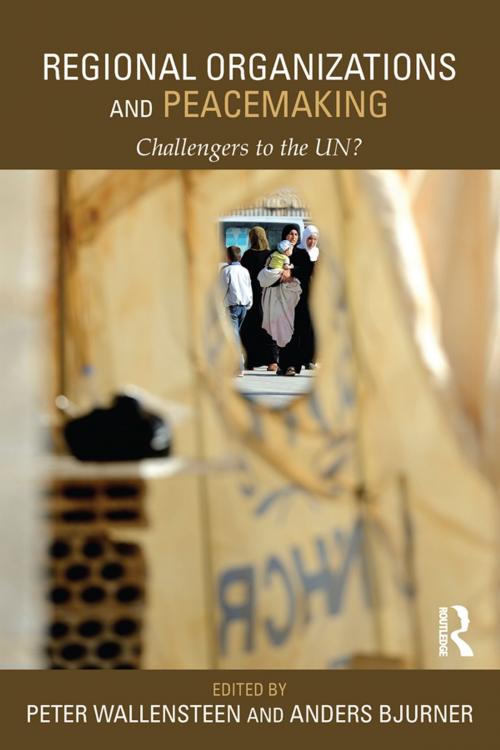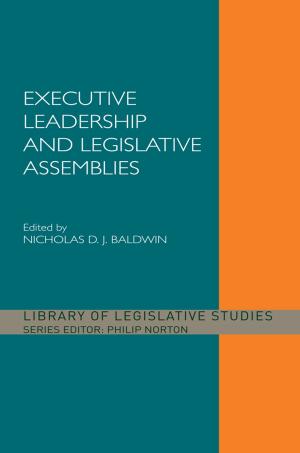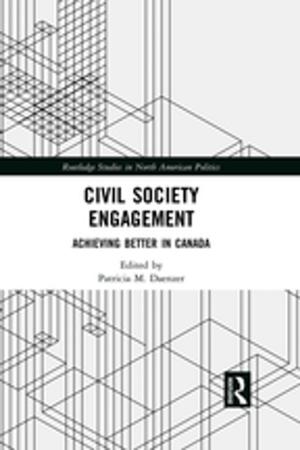Regional Organizations and Peacemaking
Challengers to the UN?
Nonfiction, Social & Cultural Studies, Political Science, International, International Security, International Relations| Author: | ISBN: | 9781317696698 | |
| Publisher: | Taylor and Francis | Publication: | August 21, 2014 |
| Imprint: | Routledge | Language: | English |
| Author: | |
| ISBN: | 9781317696698 |
| Publisher: | Taylor and Francis |
| Publication: | August 21, 2014 |
| Imprint: | Routledge |
| Language: | English |
This book analyses the new and difficult roles of regional organizations in peacemaking after the end of the Cold War and how they relate to the United Nations (UN).
Regional organizations have taken an increasingly prominent role in international efforts to deal with international security. The book highlights the complex interaction between the regional and sub-regional organizations, on the one hand, and their relations with the United Nations, on the other. Thus, the general issues of UN and its authority are scrutinized from legal, practical and geopolitical perspectives. Taking on a broad geographical focus on Africa, the Arab world and Europe, the book also provides an extensive range of case studies, with detailed analysis of particular situations, organizations and armed conflicts.
The authors scrutinise the heterogeneous relationship between the different organizations as well as the challenges to them: political resources, legal standing, financial assets, capabilities and organizational set up. Moreover, they investigate whether regional organizations, as compared to the UN, are better suited to deal with today’s intra-state conflicts. The book also aims to dissect the evolution of these institutions historically – in relation to Chapter VIII of the UN Charter which mentions the resort to 'regional arrangements’ for conflict management – as well as more generally in relation to the principles of international law and UN principles of peacemaking.
This book, written by a mixture of established scholars, diplomats and high-level policymakers, will be of great interest to students as well as practitioners in the field of peace and conflict studies, regional security, international organisations, conflict management and IR in general.
This book analyses the new and difficult roles of regional organizations in peacemaking after the end of the Cold War and how they relate to the United Nations (UN).
Regional organizations have taken an increasingly prominent role in international efforts to deal with international security. The book highlights the complex interaction between the regional and sub-regional organizations, on the one hand, and their relations with the United Nations, on the other. Thus, the general issues of UN and its authority are scrutinized from legal, practical and geopolitical perspectives. Taking on a broad geographical focus on Africa, the Arab world and Europe, the book also provides an extensive range of case studies, with detailed analysis of particular situations, organizations and armed conflicts.
The authors scrutinise the heterogeneous relationship between the different organizations as well as the challenges to them: political resources, legal standing, financial assets, capabilities and organizational set up. Moreover, they investigate whether regional organizations, as compared to the UN, are better suited to deal with today’s intra-state conflicts. The book also aims to dissect the evolution of these institutions historically – in relation to Chapter VIII of the UN Charter which mentions the resort to 'regional arrangements’ for conflict management – as well as more generally in relation to the principles of international law and UN principles of peacemaking.
This book, written by a mixture of established scholars, diplomats and high-level policymakers, will be of great interest to students as well as practitioners in the field of peace and conflict studies, regional security, international organisations, conflict management and IR in general.















